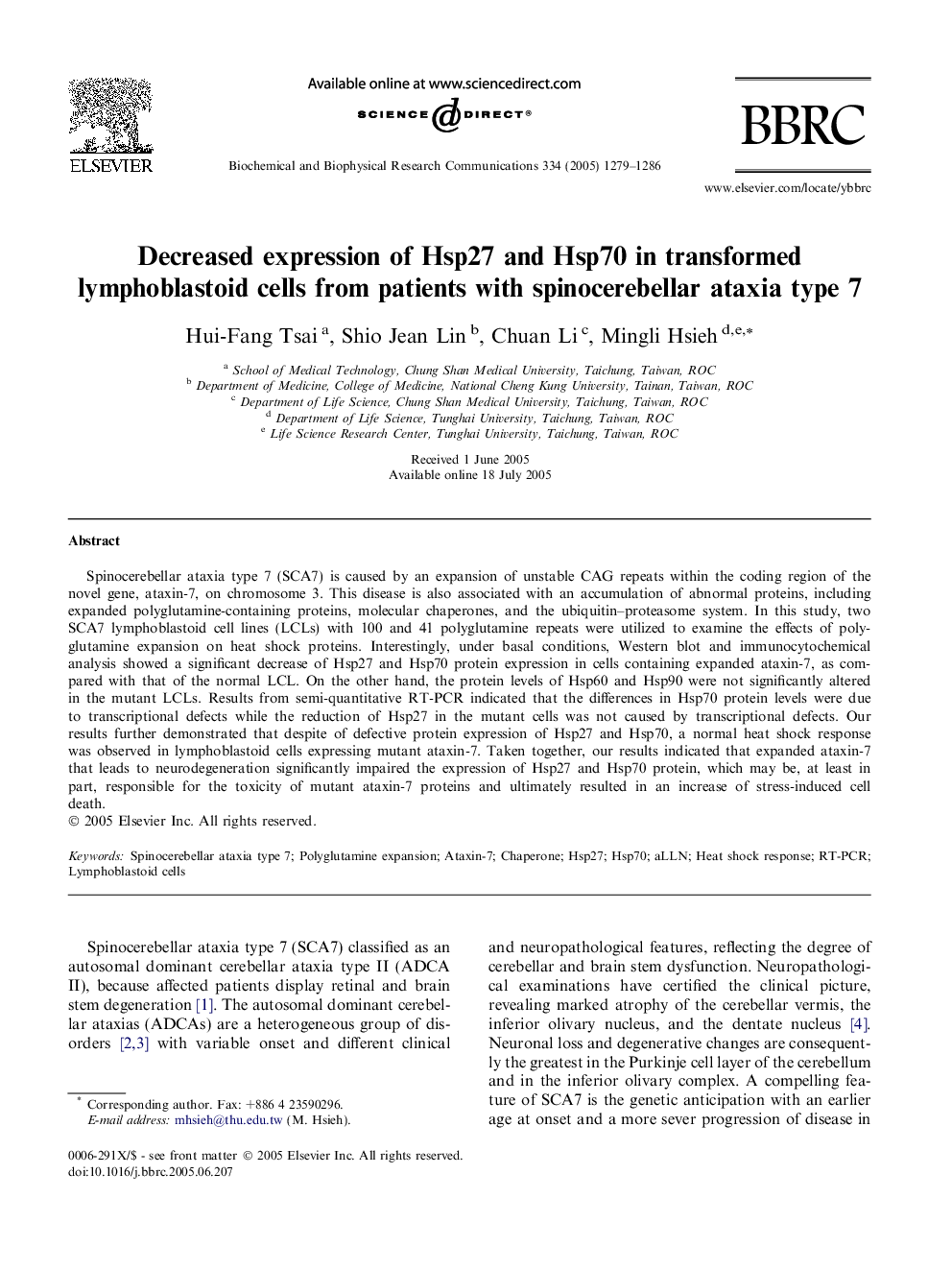| Article ID | Journal | Published Year | Pages | File Type |
|---|---|---|---|---|
| 10769054 | Biochemical and Biophysical Research Communications | 2005 | 8 Pages |
Abstract
Spinocerebellar ataxia type 7 (SCA7) is caused by an expansion of unstable CAG repeats within the coding region of the novel gene, ataxin-7, on chromosome 3. This disease is also associated with an accumulation of abnormal proteins, including expanded polyglutamine-containing proteins, molecular chaperones, and the ubiquitin-proteasome system. In this study, two SCA7 lymphoblastoid cell lines (LCLs) with 100 and 41 polyglutamine repeats were utilized to examine the effects of polyglutamine expansion on heat shock proteins. Interestingly, under basal conditions, Western blot and immunocytochemical analysis showed a significant decrease of Hsp27 and Hsp70 protein expression in cells containing expanded ataxin-7, as compared with that of the normal LCL. On the other hand, the protein levels of Hsp60 and Hsp90 were not significantly altered in the mutant LCLs. Results from semi-quantitative RT-PCR indicated that the differences in Hsp70 protein levels were due to transcriptional defects while the reduction of Hsp27 in the mutant cells was not caused by transcriptional defects. Our results further demonstrated that despite of defective protein expression of Hsp27 and Hsp70, a normal heat shock response was observed in lymphoblastoid cells expressing mutant ataxin-7. Taken together, our results indicated that expanded ataxin-7 that leads to neurodegeneration significantly impaired the expression of Hsp27 and Hsp70 protein, which may be, at least in part, responsible for the toxicity of mutant ataxin-7 proteins and ultimately resulted in an increase of stress-induced cell death.
Keywords
Related Topics
Life Sciences
Biochemistry, Genetics and Molecular Biology
Biochemistry
Authors
Hui-Fang Tsai, Shio Jean Lin, Chuan Li, Mingli Hsieh,
